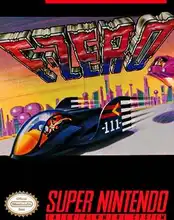Stepping into the world of classic futuristic games is like opening a time capsule twice over. First, you're transported back to the era when these pixels first graced our screens. Second, you're seeing a vision of the future as imagined through the lens of the past. It's a fascinating blend of nostalgia and speculative fiction that still holds a unique charm today.
Back in the day, science fiction wasn't just a genre; it was a playground for developers to push the boundaries of what was possible, both technologically and narratively. These games weren't just about shooting aliens or flying spaceships; they were often explorations of complex themes like artificial intelligence, corporate dystopias, space exploration, and the very definition of humanity.
The Allure of Yesteryear's Tomorrow
Why do we still fondly remember these old takes on the future? Maybe it's the chunky pixel art, the synthesized soundtracks, or the often wildly inaccurate (but charming) predictions. Whatever it is, there's a certain magic to experiencing the future as imagined by developers in the 80s and 90s.
Think about it: flying cars, sentient robots, sprawling mega-cities shrouded in perpetual rain, deep space colonization. These were the backdrops for countless adventures that fueled our imaginations long after we turned off the PC or console.
Pixels and Prophecies: Classic Futuristic Titles
The landscape of retro futuristic games is vast and varied. Here are just a few examples that defined the genre for a generation:
- Cyberpunk Dreams: Before the modern hype, games like Syndicate put us in charge of a ruthless corporation in a dystopian future, while the point-and-click adventure Blade Runner (1997) perfectly captured the atmosphere of Ridley Scott's film. Deus Ex (2000), while on the cusp of retro, delivered a complex narrative set in a conspiracy-laden future.
- Space Epics: Games like the Wing Commander series let us pilot starfighters in cinematic space battles, complete with live-action cutscenes! Star Control II offered a massive, open universe to explore and a compelling story. And who could forget the tense corridors of System Shock, blending FPS action with RPG elements in a terrifying space station?
- Dystopian Visions: Fallout (the originals!) presented a post-apocalyptic future born from atomic war, blending 50s optimism with grim reality. X-COM: UFO Defense tasked us with defending Earth from alien invasion with futuristic technology.
These games weren't just fun; they shaped our understanding of sci-fi tropes and often featured innovative gameplay mechanics that were futuristic for their time, too!
How Did They Do? Retro Visions vs. Reality
Looking back, it's fun to see which predictions came true (sort of) and which were hilariously off the mark. We don't quite have flying cars everywhere yet, and cyberspace isn't quite the neon-drenched landscape depicted in some games. But themes like corporate power, AI advancements, and the complexities of technology's impact on society are more relevant than ever.
Modern futuristic games have incredible graphics and complex simulations, but there's something raw and imaginative about how the classics tackled these ideas with limited technology. They had to rely more on atmosphere, writing, and clever design.
Reliving the Future Past
Feeling the itch to revisit these classic visions? Luckily, many of these titles are readily available and playable today:
- GOG.com: Good Old Games is a fantastic resource, offering many classic PC titles DRM-free, often pre-configured to run on modern systems.
- DOSBox: For true purists, emulators like DOSBox allow you to run original DOS game files on your computer. It takes a little setup, but it's the authentic experience.
- Archive.org: The Internet Archive has a vast collection of playable-in-browser classic games, including many DOS and early Windows titles.
Booting up one of these games is a wonderful way to appreciate how far gaming – and our concept of the future – has come.
The Legacy of the Future
The futuristic games of the past left an indelible mark on the industry and our culture. They showed us the potential of interactive storytelling in sci-fi settings and inspired countless games that followed. They are a testament to the creativity and vision of early game developers who dared to imagine what tomorrow might hold, one pixel at a time.
So, next time you're looking for a gaming adventure, consider stepping back in time to explore the future as it used to be. You might be surprised at how engaging and thought-provoking these classic titles still are.
FAQ
Q: What makes a retro game "futuristic"? A: Generally, it's set in a time period significantly ahead of its release date (e.g., 2077 from a 1994 perspective), featuring advanced technology, space travel, AI, cybernetics, or dystopian/utopian societies.
Q: Are old futuristic games still worth playing today? A: Absolutely! While graphics are dated, many offer deep gameplay, compelling stories, and unique artistic styles that hold up. They provide a fascinating look at past visions of the future.
Q: Where can I find these classic futuristic games? A: Digital storefronts like GOG.com are great for easy compatibility. Emulators like DOSBox let you run original copies, and the Internet Archive offers many playable in your browser.

